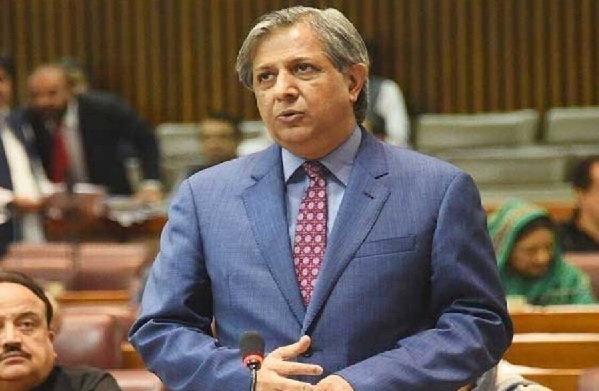KARACHI: Pakistan Stock Exchange above the 98,000 mark on Friday as share prices surged more than 2,000 points in intraday trade
ISLAMABAD: The Senate on Thursday passed the Supreme Court (Practice and Procedure) Bill 2023, which aims to deprive the office of the chief justice of Pakistan (CJP) of powers to take suo motu notice in an individual capacity.
The bill had been approved by the federal cabinet on March 28 and a day ago, the National Assembly passed it as well after a few amendments suggested by the Standing Committee on Law and Justice hours earlier.
The amendments which have been proposed in the Supreme Court’s rules, have sparked a fresh debate in legal and political circles and it is expected that the bill may be struck down by the apex court.
As the bill was moved by Federal Law Minister Azam Nazir Tarar in the Senate today, strong opposition from the PTI members was seen.
Moving the bill in the Senate today, Tarar said, “As time passes, to run institutions, you have to go through various periods [and] face various conducts.
“Law never stands still. You have to keep a margin for changes in the law so that the law can function according to the needs of the people in the present age,” he added.
The law minister said, “A new trend was seen in the Supreme Court in the past two decades — instead of running the court through collective thinking, the court became dependent on an individual.”
Tarar argued it was the opinion of various stakeholders in the country — including “Bar Councils, Bar Associations, Parliament, civil society, business sector and government officials” — that an order of “trichotomy of power” has been devised in the Consitution.
According to it, “legislation is the work of the appointed, judicial matters will be overseen by the adjudicator the judiciary and the administrative machinery to run the country will be subordinate to the Executive”, he added.
Bashing the excessive use of Article 184(3) of the Constitution, he said, “Executives were made to stand on the rostrum repeatedly. Such suo-motu notices were taken […] that matters of cleaning streets were also brought up.”
The minister lamented that the “state had incurred losses worth billions of dollars due to suo-motu notices”, mentioning that losses were faced in the Steel Mills matter and the Reko Diq agreement.
“The liver hospital also became victim to the chief justice [of Pakistan’s] personal ego,” he further said.
Tarar said voices had arisen from the various bar bodies and the Senate that the “jurisdiction of Article 106 of the Constitution be restructured at least” so that it would reflect “collective thinking”.
Defending the need for the bill, he said that there were demands in the recent Senate sessions as well to do legislation to “solve the issue”. He also highlighted that two amendments had been suggested on Wednesday by the standing committee.
Detailing the salient features of the bill, the law minister said that there had now arisen an opinion from within the Supreme Court that the power to constitute benches should not lie under one person only.
“Only collective thinking takes institutions forward. If you want to strengthen institutions, then strengthen the system instead of the personalities so that the institution can deliver,” he asserted.
You May Also Like
TEHRAN: The head of Iran’s Revolutionary Guards described the arrest warrant issued by the International Criminal Court for Israeli Prime
LOWER KURRAM: The death toll in yesterday’s gun attack on passenger vans in Khyber Pakhtunkhwa’s Lower Kurram has risen to 42,






